Mia’s restaurant in Santorini: A new generation of Greek fine dining
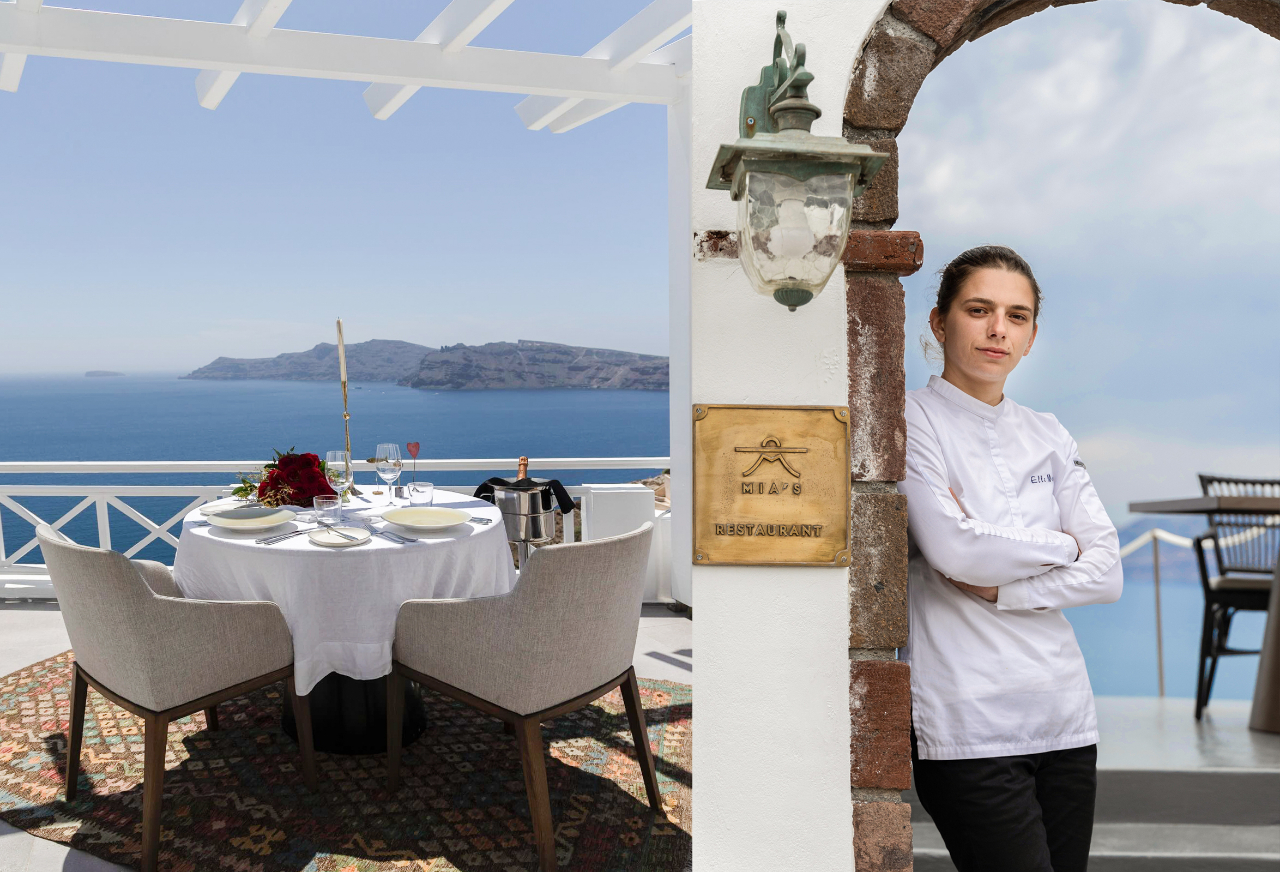
As the plane enters the southern part of the Aegean Sea, a crescent-shaped island appears in the window. In contrast to the shimmering surface of the water, the terrain is dry and faded, dotted with a scattering of matte white buildings. Today, with Santorini serving as a haven for Instagram influencers and luxury honeymoons, it’s easy to overlook how dramatically this island was reshaped by one of the most powerful volcanic eruptions in history around 1600 BC. This cataclysmic event not only transformed the landscape into a stunning caldera but also sparked the enduring legend of Atlantis.
Santorini is home to luxury hotels and trendy fine-dining spots, making it a must-stop for travellers who know there is no place in the world with more beautiful, sky-searing sunsets. Views of barrel-vaulted sugar-white houses on steep slopes of volcanic rock, stretching into the blue of the sea, seem to be part of nature and typical of the most well-known images of Greece. It may be expensive, but the question of whether it’s worth it soon dissipates.
Even without seeing the world in extremes, you immediately want to rank the view from the terrace of Mia’s restaurant as one of the best you have ever seen. This is a high point in the heart of Oia village from which you can observe the caldera, all parts of the land, a line of ships going into the depths of the Aegean Sea and cascading immaculate buildings, and this scenic wrapping does not deceive expectations.
In 2021, the young and ambitious Sellia Georges returned to her native soil to wait out the pandemic, but she fell in love with the view from her hotel: “Two months later, I made an offer to the owner.” As an experienced third-generation restaurateur, Georges believed in the ambitious chef Elli Mitrai, who was just in her mid-twenties. Together, as if straight out of a movie plot, they transformed the place into a modern fine-dining restaurant.
When talking about a restaurant business led entirely by women, it’s hard to avoid the temptation not to make it at least a little about gender. Mitrai lacks the narcissism that male chefs often unsuccessfully attempt to conceal by telling journalists about their grandmothers’ family recipes. Instead, her hard work and humility are immediately apparent, clearly showing she deserves recognition. The chef was born in a small village in the northern part of Greece. At the age of 20 she graduated from the culinary school in Athens and worked in several restaurants of well-known chefs, gaining experience in traditional fine dining.
We’re sitting on the terrace of Mia’s, where red and orange bougainvilleas line the white walls. Echoing the cubist features of the local architecture, the menu is based on deconstructing and reinterpreting traditional Greek cuisine in a new form. This allows the preservation of authentic ingredients and flavours, creating new shapes and textures.
Watching the sun dip into the ocean, we pair Hatzidakis Mavrotragano 2013 with a rosemary-infused Baby Goat dish. The wine, produced from the dark-skinned, indigenous variety, boasts a deep, vibrant red colour, with aromas of chocolate, tobacco and minerality. Next up is a modern twist on Gemista, traditionally a dish of vegetables stuffed with rice and herbs. This version features orzo as the star, complemented by vegetable broth, xynomyzithra cheese, handmade Sfakian carob rusk and spearmint-infused olive oil.
Pastitsio (a classic baked pasta dish) is served as beef tail ravioli with mousse of arseniko and Naxian cheese – it is tender yet rich and preserves its original taste. The bone marrow is combined with chickpea stew, smoked Greek eel and fresh herbs – Mitrai’s cuisine is not punchy or provocative, but it gives a new, fulfilling perspective on familiar things.
“We cook what comes from the earth,” she says. However, on Santorini, it is impossible to use only local produce – the island’s agricultural resources are very limited, so most products are delivered from the mainland. When it comes to wine, however, Santorini has a distinct advantage: it is one of the few places that preserves a rare grape variety that was almost entirely destroyed by the phylloxera epidemic in the 19th century. The scorching sun, strong winds and the lack of natural sources of fresh water forced the vine to adapt to the extreme climate: the grape stems do not grow upward but form nests – curling close to the ground, their leaves retain moisture, so the plants do not need watering. The soil is imbued with lava, volcanic ash and pumice stone. This taste of the lost Atlantis is inevitably noticeable in the wine – it has a dark depth of history.
The volcanic eruption may have buried the Bronze Age settlements, but the heritage of old times still permeates all aspects of local culture. Taking a short walk, we arrive at the village of Finikia. Here, among the vineyards and pistachio trees, we find a place to feel at home despite being on an unfamiliar island. Pink Freud is a complex of fully equipped villas that combines the mystical spirit of Santorini with the enjoyment of cosiness and comfort. Design elements reflect the local landscape with soft, natural shapes and materials, along with vintage, timeless objects. The pool terraces, framed by milky and ochre walls, offer expansive views of the water stretching to the horizon.
No one knows whether Atlantis actually existed or is simply a philosophical myth from Plato’s dialogues, but Santorini and its recorded history need no further metaphors. This place is empowered by its own past, but today, businesses like Mia’s are writing their own history – it looks more promising than ever before.
Elizaveta Kolesova
Photos: Courtesy of Mia’s
To book a table at Mia’s, Santorini Greece, call +30 2286 072072 or visit their website here.



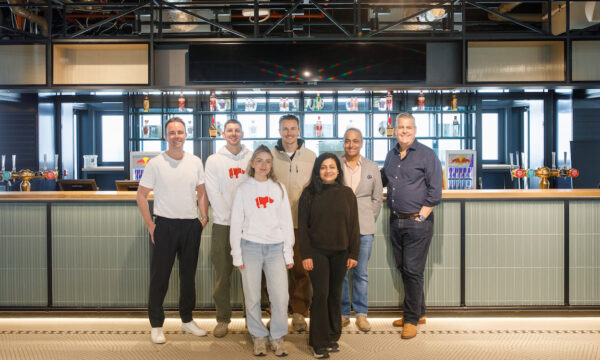
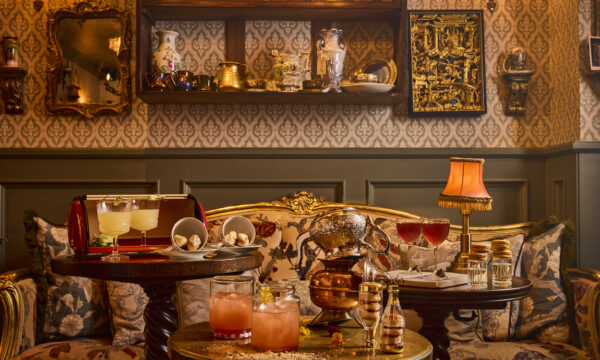
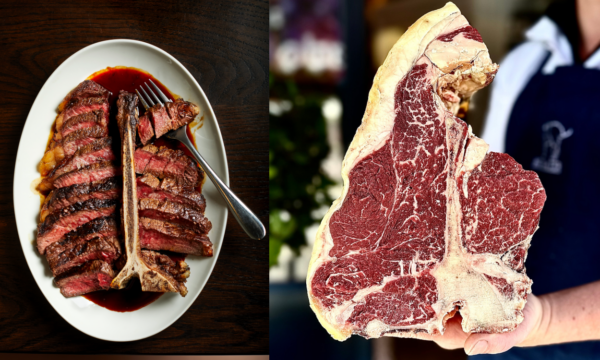
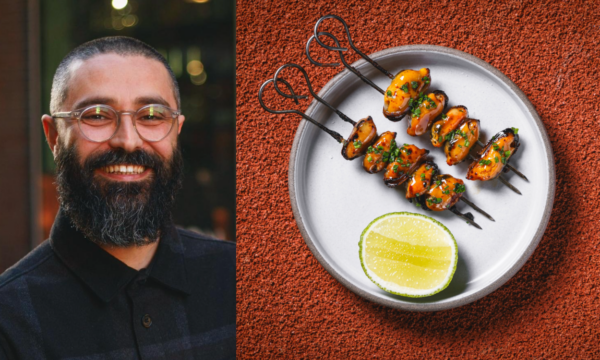

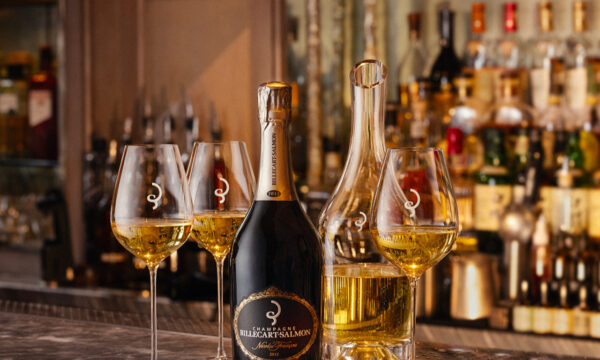
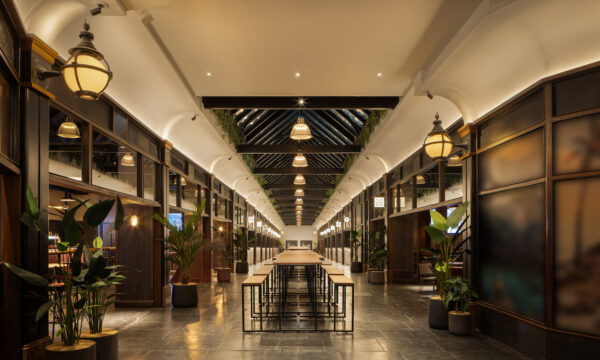
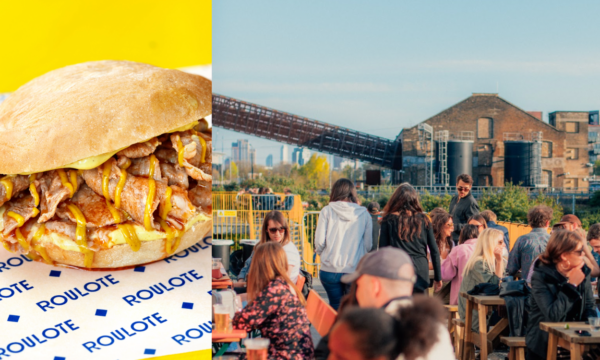














Facebook
Twitter
Instagram
YouTube
RSS